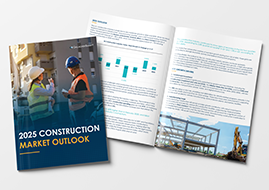
February 8, 2024 — The usual business pundits have been arguing about the impact of generative artificial intelligence (AI) on overall employment since early last year.* Will AI cause a net reduction in jobs or rather change the nature of existing jobs? That can be a little like arguing about the performance of favorite baseball teams. And the answer may be the same as for those sports discussions — let's look at the scoreboard.
AI in one form or another has been around for over a decade now and we are beginning to have some numbers. An article that appeared on CNBC in late December provides some relatively hard numbers. The title is a spoiler, so you don't have to be in suspense: AI Job Losses Are Rising: But the Numbers Don't Tell the Full Story. The authors cite a number of different stats from various sources, but they all tell the same tale as this handy quote:
According to a recent report of 750 business leaders using AI from ResumeBuilder, 37% say the technology replaced workers in 2023. Meanwhile, 44% report that there will be layoffs in 2024 resulting from AI efficiency.
Why this development deserves your notice in managing risk may be illustrated by a brief anecdote from 30 years ago. A major financial services company needed to cut costs quickly, so they did what many similar companies did in those years: They offered very generous early retirement to their senior people across a variety of job types. This offer was handled by HR. Risk management was not involved. Indeed, the impact on personnel costs was dramatic, as planned.
However, there was one hitch in the git-along.
One entire IT support department of 18 tech employees took the retirement deal. No one in HR noticed until the Monday when no one showed up to run an old but vital part of the company's systems. This part of the system was so old that it featured a great deal of COBOL code updated with loops and loops of spaghetti code.** All of it largely undocumented. Major systems depended on this clanking antique to move data. Panic ensued.
The solution? Several of the newly retired techies were allowed to keep their generous retirement benefits while being hired back as consultants at a mind-boggling hourly rate.
When I see positions being eliminated by AI, I recall that incident, for which I had a front row seat. Is risk management being consulted about mission-critical skill sets that may accidentally be packed out the door because AI can now perform the more visible 50% of someone's job? Has anyone checked out the other 50%?
Using AI to pick up certain functions has a ripple effect that can cause other task sets to be recombined and thus change skill set demands. As the folks in charge of the debacle described above learned, reducing head count carries potentially unseen risks. Rejiggering operations around new AI capabilities is no different. A person represents a whole skill set and a part of your institutional memory. What is the risk in thinking, "oh, the AI will replace that person — no problem"?
*One more round in the ongoing discussion of automation eliminating jobs that has been going on since the first card-operated Jacquard looms in 1804.
**You guessed it — that code dated back to the early 1960s, as did the employees who created and understood it.
Author

Dr. Gary Anderberg
Make Gallagher Bassett your dependable partner
When making the right decision at the right time is critical to minimize risk for your business, count on Gallagher Bassett's extensive experience and global network to deliver.

